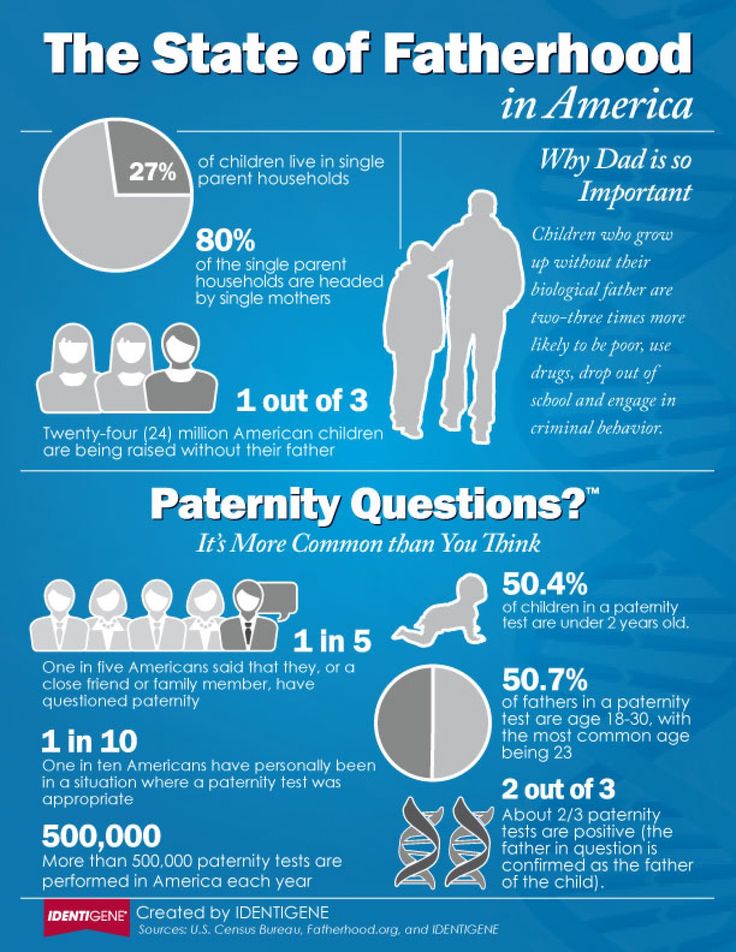How to tell a child their mother is in jail
When a Child's Parent Is Incarcerated
Tanja Rothrauff
Graduate student
Human Development and Family Studies
Reviewed by Megan Roodhouse
Human Development and Family Studies
and Brian Bowles
ParentLink
Should I tell my grandchildren that their parent is incarcerated?
This a personal decision, although the truth is best in most cases. You have three options: You can be very open with your grandchildren and the outside world; you can tell the grandchildren the truth, but keep it private from the outside world; or you can tell your grandchildren and the outside world a "story." Weigh the pros and cons of each option carefully before making a final decision. Here are a few things to consider:
- When children do not know their parents' whereabouts, they often feel confused, anxious and stressed. Children are often present when their parent is arrested, so knowing where their parent is can help answer their questions, and relieve their concerns and uncertainty.
They may feel that the parent left because they are no longer loved or valued. By being truthful, it allows you to reassure your grandchildren that they have not been abandoned. Children often blame themselves for their parent's incarceration, so tell them it is not their fault that their parent went to prison. Tell them that their parent is in prison because of a poor decision.
- Lying about a parent's whereabouts may seem like a good solution, but this strategy often has negative outcomes. For example, many grandparents tell their grandchildren that the parent is attending school, working out of town, in the military or in the hospital. But children are smart and aware of their surroundings — they may find out that their parent is in prison. As a result, your grandchildren may no longer trust you and will withdraw from you. It is usually best to tell the truth. However, encouraging the child not to tell others may be appropriate in some cases. Your grandchild may be teased or humiliated by other children at school, and even school counselors and teachers do not always know how to provide adequate support to children whose parents are incarcerated.
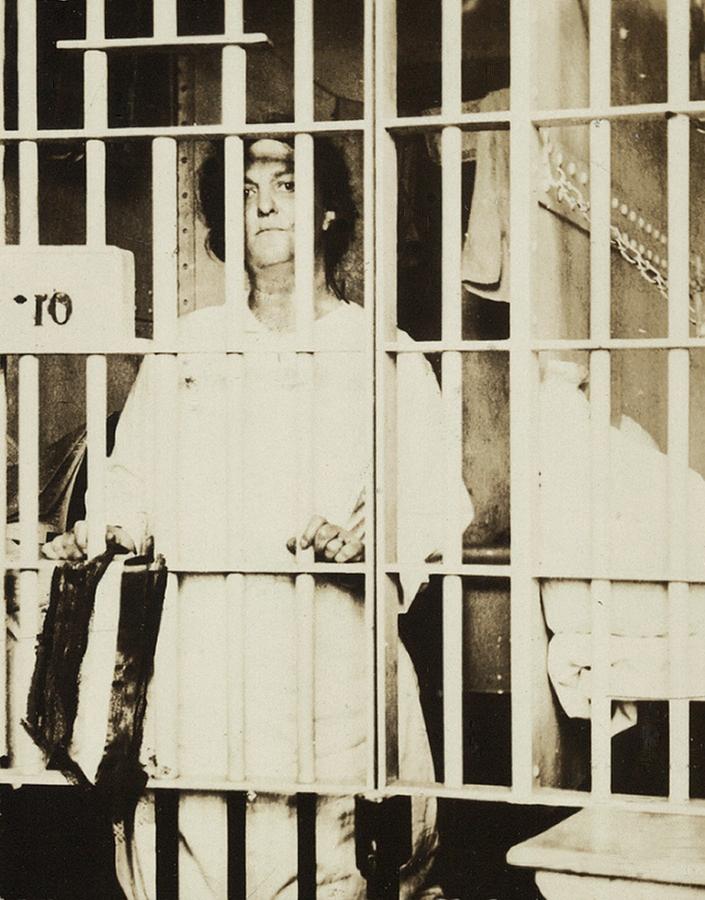
- If you decide to tell your grandchildren the truth, be prepared to explain why the parent is in prison. Children need to understand that illegal behavior carries consequences. However, there is no need to disclose all of the details of a particular crime to your young grandchildren. They will be satisfied with simple answers, such as "Dad hurt someone" or "Mom took drugs." Older children may ask for more specific answers.
- Tell your grandchildren the truth if they ask when their parent will come home, even if the answer is "I don't know." In many cases, the prison sentence is a specific amount. Reassure your grandchildren that their parent is safe in prison. You will add to their distress by telling them about the possible hardships in prison. Your grandchildren mainly need to be reassured that they are safe, loved and not to blame for their parent's incarceration.
Should I encourage my grandchildren to visit their parent in prison?
This depends on the children's ages and the relationship they had with their parent prior to incarceration. For many children, it is difficult to deal with their complex feelings about their parent's incarceration. While children may want to visit or talk to their parent, they also may be too upset, angry or scared to see their parent in prison. Encourage your grandchildren to share their feelings. Let them know that mixed feelings are normal and that they are entitled to feel angry, scared and upset.
For many children, it is difficult to deal with their complex feelings about their parent's incarceration. While children may want to visit or talk to their parent, they also may be too upset, angry or scared to see their parent in prison. Encourage your grandchildren to share their feelings. Let them know that mixed feelings are normal and that they are entitled to feel angry, scared and upset.
Visiting prison also depends on your financial resources, the prison's policy, the prison's proximity to your home and the parent's preference. If possible, most grandchildren benefit from visiting their parent. Children will feel better knowing that their parent is okay and still loves them. However, it is also emotionally difficult to see a parent in prison.
If you do visit, it's normal to feel worried about sharing stories from everyday life. In most cases, it is best to share experiences and talk about prison as well as the outside world. Children may want to talk about school, difficulties and teachers. They may also want to write down questions or stories prior to the visit so they do not forget anything they want to discuss. You can also encourage the parent to write letters and stay in contact with the child.
They may also want to write down questions or stories prior to the visit so they do not forget anything they want to discuss. You can also encourage the parent to write letters and stay in contact with the child.
Is it healthy for my grandchildren to maintain a relationship with their incarcerated parent?
In most cases, regular contact will help your grandchildren emotionally, academically and behaviorally. Children have vivid imaginations and may imagine situations that do not reflect reality, so it can be best for the grandchild to see where their parent lives. Some children feel very upset being separated from their parents, and visiting allows them to express their feelings, ask questions and see that their parent is safe. Visiting the parent in prison also allows the parent to play a role in the children's lives. This is important for the future, especially if the parent and child will be reunited.
However, children may feel guilty after seeing and talking with their parent.![]() Because children often blame themselves for the parent's incarceration, they need reassurance from their parent that they are loved and not to blame. This will help your grandchildren heal emotionally. It can also be therapeutic for your grandchildren to see that other children are in similar situations.
Because children often blame themselves for the parent's incarceration, they need reassurance from their parent that they are loved and not to blame. This will help your grandchildren heal emotionally. It can also be therapeutic for your grandchildren to see that other children are in similar situations.
It scares me to think that my incarcerated child will eventually want to take back the children or become a major part of their lives after prison. Should I be worried?
It makes sense that you worry about your grandchildren's future safety and well-being. Many incarcerated parents continue to play a limited parental role. They may also have the opportunity to take parenting classes while in prison, which can help improve parenting skills and the parent-child relationship. During this time, it is important for the entire family to build positive relationships. Encourage the grandchildren's parent in his or her efforts while continuing your role as an active, caring grandparent.
Do I simply take my grandchildren along when I visit the prison?
The regular visitation may not be ideal for children, so ask if the prison has a "Parent-Child Visitation Program." These programs feature flexible visiting hours and play areas with toys or activities, which support more relaxed and meaningful interactions between children and their incarcerated parents. In Missouri, the 4-H Living Interactive Family Education Program engages children and parents in activities. For more information, call 1-573-882-9360, or visit extension.missouri.edu/fcrp/lifeevaluation/lifeprogram.htm. Some prisons work with their local communities to establish "summer host families," where children can stay temporarily and be closer to their incarcerated parent. This also gives grandparents a much needed parenting break. Contact the prison to learn about available programs for children of inmates.
How can I best meet the needs of my grandchildren?
Children and their needs are diverse.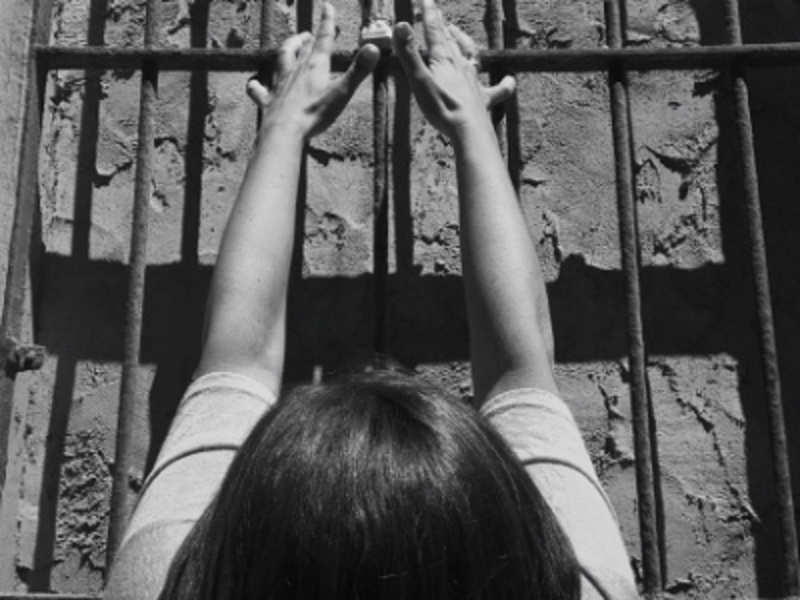 While some children have had minimal interaction with their parent prior to incarceration, others may have been close to their parent and possibly present during the arrest. Others may come from families where alcohol and drug abuse created an unpredictable and chaotic home life. Such children may be relieved to be in their grandparents' care. Every situation is different.
While some children have had minimal interaction with their parent prior to incarceration, others may have been close to their parent and possibly present during the arrest. Others may come from families where alcohol and drug abuse created an unpredictable and chaotic home life. Such children may be relieved to be in their grandparents' care. Every situation is different.
However, all children need stability, reassurance and love from both their parents and grandparents. Children also need to hear positive things about their parent, despite the situation and crime committed. Children will be loyal to their parent and should not feel as though they have to defend their parent. Children also need a safe environment to express anger, anxiety, confusion and sadness. Most children will benefit from contact with their parent. They also need a supportive environment outside of family, including teachers, counselors and friends.
- Children of Prisoners Library. (n.d.). Retrieved November 24, 2007, from http://fcnetwork.
 org/cpl/cplindex.html.
org/cpl/cplindex.html. - Johnston, D. (1995). Parent-child visitation in the jail or prison. In K. Bael and D. Johnston (Eds.), Children of incarcerated parents (pp. 135-143). NY: Lexington Books.
- Barnhill, S. (1996). Three generations at risk: Imprisoned women, their children, and grandmother caregivers. Generations, 20, 39-40.
- Block, K. J., and Potthast, M. J. (2001). Girl Scouts beyond bars: Facilitating parent-child contact in correctional settings. In C. Seymore and C. Finney Hairston (Eds.),
- Children with parents in prison: Child welfare policy, program, and practice issues (pp. 93-110). New Brunswick, NJ: Transaction Press.
- Young, D. S., and Jefferson Smith, C. (2000). When moms are incarcerated: The needs of children, mothers, and caregivers. Families in Society: The Journal of Contemporary Human Services, 81, 130-141.
- University of Missouri Extension. (2004). L.I.F.E. The Living Interactive Family Education Program. Retrieved November 30, 2007, from extension.
 missouri.edu/fcrp/lifeevaluation/lifeprogram.htm.
missouri.edu/fcrp/lifeevaluation/lifeprogram.htm. - Reilly, J. (retrieved 2007). Children of incarcerated parents. What is the caregiver's role?University of Nevada Cooperative Extension, http://www.canr.uconn.edu/ces/child/newsarticles/CCC743.html.
Skip to main content
Skip to main content
Talking to children and young people about imprisonment – Families Outside
The imprisonment of a loved one can be overwhelming for everyone involved. It can bring about big changes and transitions for children and young people, but with your support they can emerge from it feeling loved, confident, and strong. One of the most difficult challenges faced by families when someone goes to prison is what to tell the children. This information sheet may help you with this, but you may also find it helpful to speak with your Health Visitor, GP, or your child/ren’s teacher.
Should I tell my child when a close relative goes to prison?
As a parent, it’s normal to want to protect your children from bad news.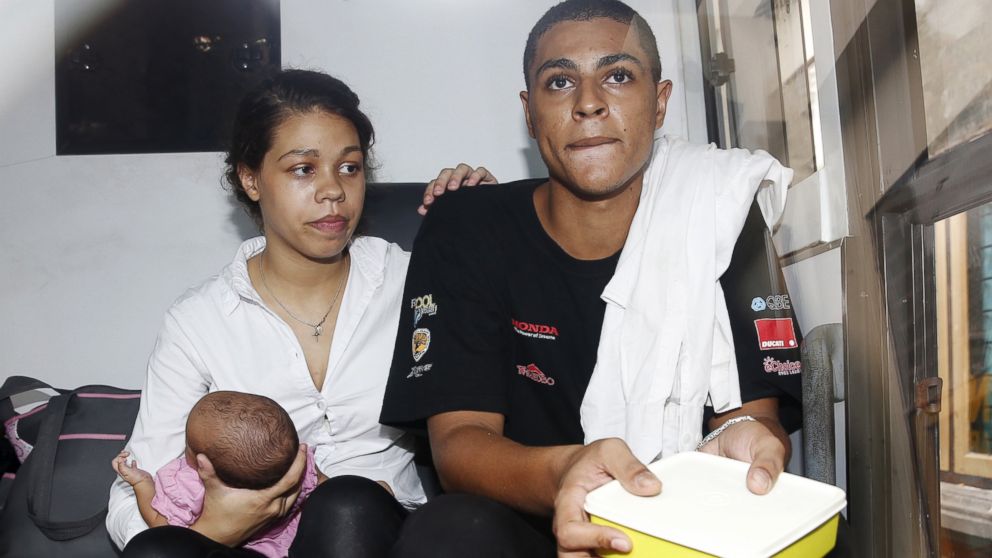 At first you might think it’s better not to share the news that their relative is in prison. But keeping it a secret can be difficult, as there is no guaranteed way to protect children from finding out what has happened in some other way. Your child may already know and understand more than you realise.
At first you might think it’s better not to share the news that their relative is in prison. But keeping it a secret can be difficult, as there is no guaranteed way to protect children from finding out what has happened in some other way. Your child may already know and understand more than you realise.
It’s natural to have concerns about telling your child about imprisonment, especially if your partner committed a crime against you, or if it were a violent or sexual offence. At times like this, it is very easy for adults in the family to be caught up in their own feelings and worries. But this can also be a difficult time for children, and they will want to know where their parent is and why.
“Why are you sad mummy? Where is Daddy? When is he coming home? Can I see him? Did I do something wrong? Is that why he went away?”Children who are not told where their parent is can become confused. It may be damaging for your child and your relationship with them if they feel you are hiding something from them, and most children will sense this.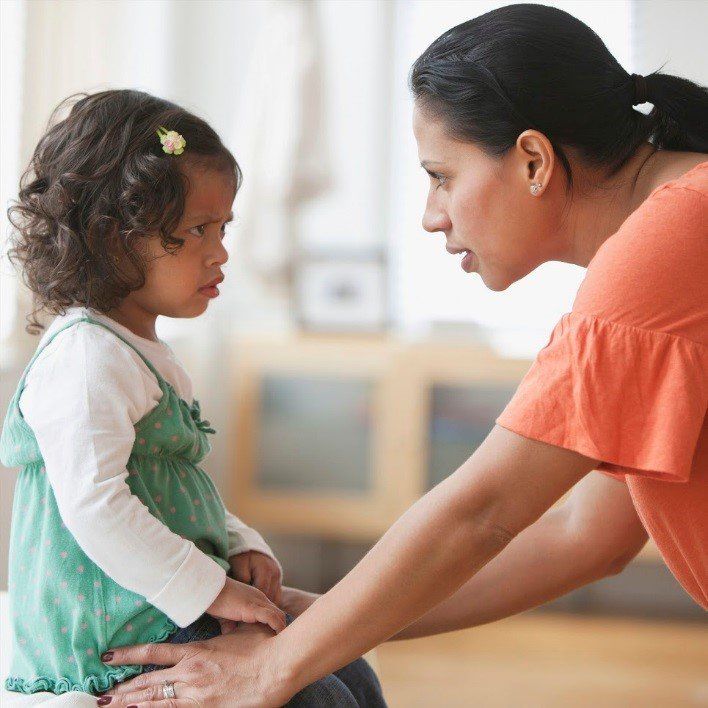 They will feel less able to ask questions and will imagine things which will worry them more.
They will feel less able to ask questions and will imagine things which will worry them more.
When, what, and how much shall I tell the children?
There is no right time or way to tell your child, but it is best to get things out into the open as soon as possible. The age and development of your child will be important in deciding how much information and reassurance they will need.
It is not always necessary or helpful to give children details of the crime committed.
They just need to be able to trust that you have told them the truth. For example, many children can accept the explanation that their parent/relative has gone to prison because a court decided they have done something wrong.
They need to feel that they can ask questions and find out what they need to know when they need to.
They may feel it is they who have done something wrong and that is the reason why their parent has gone away. If so, they need to be told clearly that it is not their fault.
Step 1: Prepare for the conversation
It can help to plan when you are going to tell children so that you are sure you have plenty of time to talk and answer questions without being disturbed. It may be helpful to tell them with another adult whom the children feel they can trust.
Think about your goals. You may want to consider (amongst other things):
- What your child needs to know about where their relative is and why they are there
- What prison is like
- How long they will be in prison and will they be able to talk to them on the phone or visit them
- How you can help your child understand what’s going on
- What you can do to help your child cope
- How should the child handle talking with friends
- How you want your child to feel after the talk.
Step 2: Talk
Children need to feel that they are listened to and understood. Listening to a child, offering reassurance, and trying to understand things from their point of view can help them cope with the situation. It may be helpful for them to talk to another family member or school teacher, as children may not want to cause more upset by sharing their own worries and fears with those closest to them.
Listening to a child, offering reassurance, and trying to understand things from their point of view can help them cope with the situation. It may be helpful for them to talk to another family member or school teacher, as children may not want to cause more upset by sharing their own worries and fears with those closest to them.
Before you have the talk, check to see if your child is open to talking with you at the time. You might consider saying something like this: “I’d like to talk with you about something important. Is this a good time?”
In some cases it will not be appropriate for a child to have contact with a parent in prison, especially if there is a risk of harm to the child. This will need to be explained to them.
Step 3: Follow up
Remember, this talk is likely to be the first of many conversations about their imprisoned relative and prison life. As time goes on, it’s very important to make sure that you and your child keep talking about what’s going on and how they are feeling.
Keep in mind that your child may hear things about your relative’s imprisonment from other people, which means that there may be times when you will have to help your child deal with people saying or doing things which upset them. You can support them and reassure them that they have done nothing wrong.
Children’s reactions
Children whose parents are in prison may feel:
- WORRIED that you will be taken away too
- SAD that the family has changed
- ASHAMED about why their parent is in prison
- RELIEVED if there have been a lot of rows or arguments
- ANGRY with their parent for leaving them, or with the authorities for taking him/her away.
- GRIEF because they are missing their parent and all he/she did for and with them
- EMBARRASSED by what their friends will think or say
- GUILTY in case they have been to blame somehow
- FRIGHTENED OR CONFUSED about what will happen next
- BURDENED if they have to keep the imprisonment a secret
- AFRAID to ask questions or talk about their parent
- WORTHLESS – low self-esteem often follows on from these other feelings.
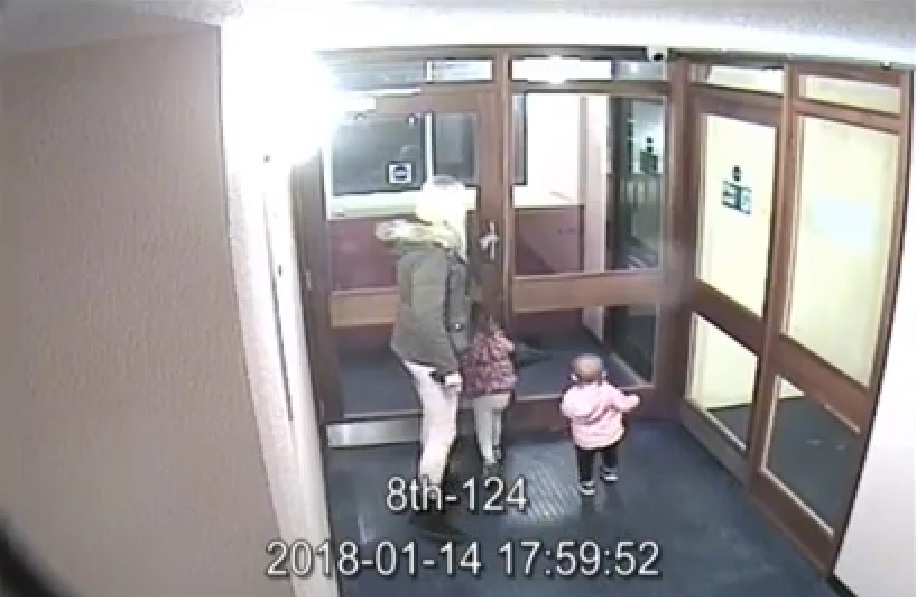
- Changes in children’s behaviour
If there has been a change in the family situation because their parent has gone to prison, you may see changes in your child’s behaviour. This is likely to be a sign that they are trying to deal with the many different feelings listed above. They may show this by going back to younger behaviour like bed-wetting or temper tantrums. They may find it difficult to concentrate at school. They may be aware that something has happened but feel too frightened to ask. You may find it helpful to speak with your Health Visitor or their teacher at school.
How Can You Help?
As far as possible, help children stay in contact with their parent or relative. You can do this by:
- Taking them on visits to see their relative
- Allowing the children to visit with another family member or friends if you don’t want to take them yourself
- Answering any questions as honestly as possible in a way that makes sense to them
- Encouraging children to talk about their parent/relative
- Listening to their views on what they want to happen
- Not turning them against their parent/relative
- Reassuring them that their parent/relative still loves them
- Keeping things as normal as possible
- Telling the school, so that they can support the child.
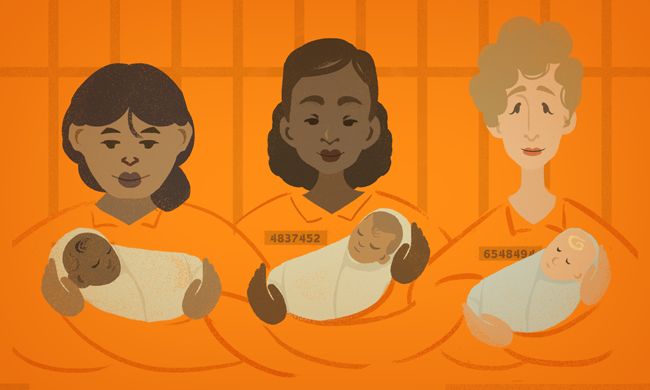
Different ways of Keeping in Touch
- Telephone calls – try to agree what time mum/dad will phone and make sure the child/ren are around. Leave time so they get to talk with them as well as with you
- Scrap book – encourage children to keep a scrapbook of things they want to share with their parent/relative when they get home e.g. photos, schoolwork and pictures.
- Letters – encourage them to write letters to mum/dad
- Pictures/drawings – younger children could draw a picture and post it
- Email – the email a prisoner service allows messages to be sent to a prisoner. For more information visit www.emailaprisoner.com
Information on visiting a Scottish prison with your child is available here.
Resources for childrem
Families Outside has developed a range of resources for children which can help them to explore their feelings about having a family member in prison and can help you to have an open conversation about what has happened.
“My Diary”, follows the journey of a boy whose father is in prison. The book is a useful tool for anyone wishing to talk with children about the impact of imprisonment on them. A video version is available here.
“My Story” written by Katie, has been developed with support from Families Outside, to help young people with a family member in prison to understand and explore their feelings.
“My Visit” offers children a photo guide to prison and aims to address some of the fears children may have about life inside prison. It also sets out what they can expect if they decide to go and visit. It is also available as a video tour.
If you would like a hard copy of “My Diary”, email [email protected]
It’s No Holiday
This film was created to support teenagers who may be affected by imprisonment of a family member, and raise awareness of the issues which can affect these young people.
KIN
KIN is a creative arts project by and for young people aged between 14 and 24 years who have experienced the imprisonment of a close family member.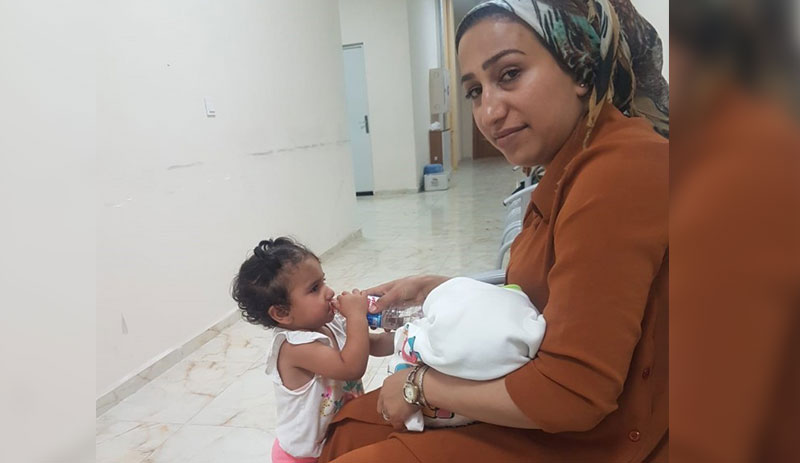 Supported by Vox Liminis, members of KIN use their own experiences to design resources for other young people affected by imprisonment. To access these resources please visit their website.
Supported by Vox Liminis, members of KIN use their own experiences to design resources for other young people affected by imprisonment. To access these resources please visit their website.
All materials Copyright © Families Outside 2017. Publication date: May 2017
Families Outside is a company limited by guarantee registered In Scotland No. 236539 and is recognised as a Scottish charity by the OSCR, No. SC025366.
How to talk to a child about the crime and punishment of his parent?
Share
Research shows that it is important to talk to a child about a parent's arrest. The child should be told the truth, taking into account the age of the child.
It is not necessary to tell a child about the act for which his parent went to prison. You can, for example, say that the father or mother did something wrong, and now they are correcting it. You don't have to go into the details of what happened. If you do not tell the child about what happened, he will begin to imagine where his parent may be. For example, he may imagine that the parent has died. In any case, it is better to discuss what happened with the child than to leave him in the dark.
For example, he may imagine that the parent has died. In any case, it is better to discuss what happened with the child than to leave him in the dark.
Some parents think they are protecting their child by hiding the truth from them. Often a parent feels insecure because he does not know how to tell the child about what happened. In fact, you can't hide a parent's arrest from a child. He hears the conversations of adults in the family, often outside the family is aware of the arrest (for example, information can be published in the media). The child can learn about what happened from other children in the yard, at school or kindergarten. With the help of conversation, you need to give the child skills that will help him cope in a difficult situation, both with himself and with others. A parent can get help talking about what happened at the daycare or school.
Of course, there are families where the imprisoned parent does not participate in the daily life of the child. In this case, you must definitely consider whether it is worth talking about what happened at all. When starting a conversation, one should take into account the integrity of the family, the age and origin of the child, as well as the fact that the child already knows about what happened, one should not forget about creating a safe atmosphere.
When starting a conversation, one should take into account the integrity of the family, the age and origin of the child, as well as the fact that the child already knows about what happened, one should not forget about creating a safe atmosphere.
Since the parent's imprisonment carries a risk for the child's development, it is also possible to discuss what happened with a trustworthy adult at the child's school, kindergarten, and hobby group. Of course, there are times when telling what happened is more of a problem. Therefore, the parent living with the child must make decisions about the dissemination of information based primarily on the best interests of the child.
Talking to the child may also be timely if the parent has the opportunity to serve the sentence at home (eg electronic supervision).
Maintaining contact with the parent is important for the child. This is also important for the development of self-awareness. If communication ends or the parent does not meet the incarcerated parent, the child may become alienated from the incarcerated parent. Separation can cause different feelings in a child. By maintaining communication and dating, you can support the development of the child.
Separation can cause different feelings in a child. By maintaining communication and dating, you can support the development of the child.
It is important to speak openly with the child and the whole family about the parent's imprisonment. The family may need outside help and support to talk appropriate to the child's age and developmental level, and adults also often need support to deal with their feelings. When a parent goes into custody, it is especially important that the child be told the truth about the situation, given their age and developmental level. At the same time, both parents, both those who stayed at home and those who are incarcerated, may need help in understanding how to talk to the child about what happened.
Silencing or making up excuses (for example, “mom or dad is on a business trip”) is very common and those working with children should be aware of how harmful silence and even lying about what happened can be for both the child and his parents. The burden of secrecy is a heavy burden, and a child, even knowing the truth, may try to hide from the parent that he knows it. A child can permanently lose trust in his parents if it turns out that he was lied to.
The burden of secrecy is a heavy burden, and a child, even knowing the truth, may try to hide from the parent that he knows it. A child can permanently lose trust in his parents if it turns out that he was lied to.
How a child experiences a parent's imprisonment, and how it should be discussed with the child and family, is influenced by various situations. It is also necessary to consider the reasons why the parent went to prison: whether the crime was committed against a family member or an adult significant to the child, whether the child was a witness to the crime, whether it is a crime that has attracted / will attract public attention, or whether it is a situation associated with a long-standing crime for which the child may feel guilty. For example, in connection with an economic crime, a child may blame himself for asking a parent for money or things, or the crime came to light for a reason given by the child (for example, a parent's drug or alcohol addiction or domestic violence).
The child may be concerned about the situation the incarcerated parent is in, or may have other concerns about prison. Concrete, clear and factual information about the prison and the situation of the parent who is there makes it easier for the child.
Condemned to wait: how to explain to a child that dad is in prison
It is not customary for us to renounce prison and the bag. That's why it's important to heed the advice of professional psychologists on how to ride out times of crisis while a family member is behind bars. This will help protect against making rash spontaneous decisions and committing ridiculous acts, survive stress and unite relatives in the most difficult stages of life. A child psychotherapist from Almaty told Vox Populi about how to behave to the wife and children of a prisoner while he is in custody Oksana Doronkina .
Photo: Oleg Spivak
Personal drama
VOX : How to prepare children for the news that their father was detained and placed in prison for several months?
- It depends on their age. The younger the child, the shorter the information should be. For example, it is enough for the mother of a five-year-old kid to tell him that dad will not live with them for some time, since he committed a bad deed and was punished for this. In no case do not invent a legend that, they say, dad went on a business trip, for work or treatment ... There is no need to hide the truth and in every possible way protect children from negative information. They need to talk about what is happening in the family, because they are its full members. You can already explain everything to a teenager as it is, that is, say that dad is suspected of committing such and such a crime and now he needs to prove his innocence. In any case, it is necessary to convey to the children that dad still loves them and is waiting for a reunion with his family.
The younger the child, the shorter the information should be. For example, it is enough for the mother of a five-year-old kid to tell him that dad will not live with them for some time, since he committed a bad deed and was punished for this. In no case do not invent a legend that, they say, dad went on a business trip, for work or treatment ... There is no need to hide the truth and in every possible way protect children from negative information. They need to talk about what is happening in the family, because they are its full members. You can already explain everything to a teenager as it is, that is, say that dad is suspected of committing such and such a crime and now he needs to prove his innocence. In any case, it is necessary to convey to the children that dad still loves them and is waiting for a reunion with his family.
VOX : What absolutely should not be done?
— Go deep into the details of a criminal case and in every possible way whitewash the reputation of the father, especially if he is detained on suspicion of committing a corruption crime.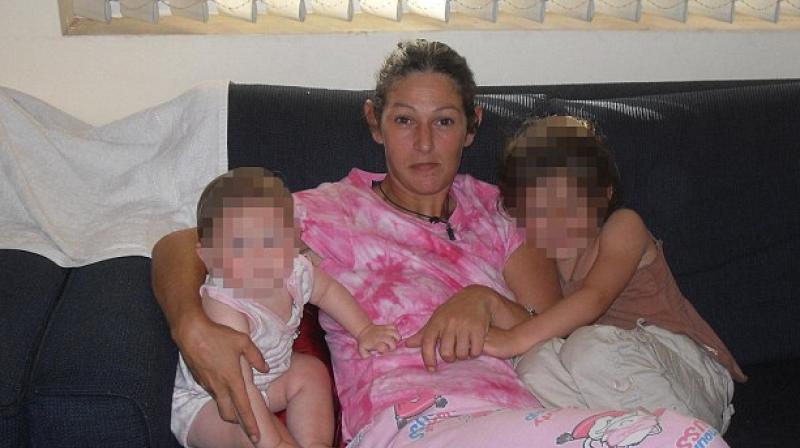 There is no need to declare that he, they say, was set up, he is not guilty, and stuff like that. The task of the mother is to prepare the children for human condemnation and the fact that they will have to live without a father for several years. You yourself know that we rarely pass acquittals, so you should not count on the quick return of the head of the family. It is much more difficult to endure the mockery and sarcastic attacks of strangers about bad genes, a tarnished family reputation and retribution for sins. As they say, you can’t throw a scarf on someone else’s mouth!
There is no need to declare that he, they say, was set up, he is not guilty, and stuff like that. The task of the mother is to prepare the children for human condemnation and the fact that they will have to live without a father for several years. You yourself know that we rarely pass acquittals, so you should not count on the quick return of the head of the family. It is much more difficult to endure the mockery and sarcastic attacks of strangers about bad genes, a tarnished family reputation and retribution for sins. As they say, you can’t throw a scarf on someone else’s mouth!
VOX: Is it necessary to plan a joint happy future when communicating with children, as soon as dad returns home from prison?
— We must live for today, and not look years ahead, so it is better not to set children up for a bright, happy future. It is illusory, so enjoy life here and now. It’s better to ask your son and daughter where everyone should go today or what to do on the weekend.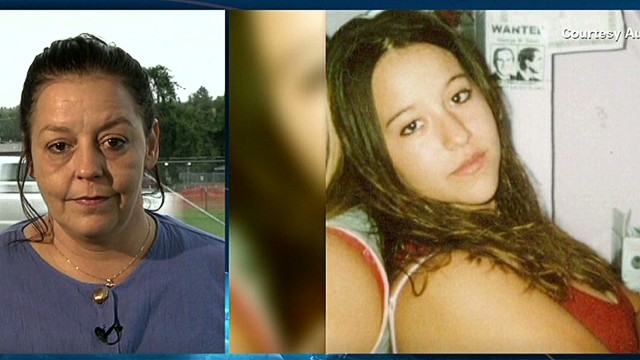
VOX : And in what cases can you hide the truth about the crime of their father from children?
- If a man has committed a particularly serious crime - for example, premeditated murder, rape of a minor, a terrorist attack with numerous victims. In this case, you will never explain the motives to children and you will not come up with an excuse for their father. And given the fact that he faces a long prison term, it is better to think about providing security measures for the next of kin. I mean salvation from possible lynching or blood feud. It would be reasonable in this case to change the place of residence and even the surname.
VOX : Or maybe the wife should immediately file for divorce if the husband is facing life imprisonment or 25 years in a strict regime colony?
— It's hard to give advice here, because everything here is purely individual. If a woman loves a man, then she will wait for years for his return and not pay attention to criticism, condemnation, rumors and gossip. If their relationship has exhausted itself and she wants to start life anew, then she files for divorce, and he accepts it. Perhaps not immediately, over time, but accepts and lets go of your life. You know, the best definition of what life imprisonment is, I heard in one criminal TV program. They said that PLS is a loneliness that gets worse over the years. First, friends and acquaintances refuse such a convict, then relatives, and then the closest and dearest people move away or die, and he remains alone.
If their relationship has exhausted itself and she wants to start life anew, then she files for divorce, and he accepts it. Perhaps not immediately, over time, but accepts and lets go of your life. You know, the best definition of what life imprisonment is, I heard in one criminal TV program. They said that PLS is a loneliness that gets worse over the years. First, friends and acquaintances refuse such a convict, then relatives, and then the closest and dearest people move away or die, and he remains alone.
VOX: Is it worth it for a woman to give up her children for a while to be raised by separate grandparents in order to protect them from gossip and make life easier for herself? After all, she will have to pay fees to a lawyer, rush with transfers to prison, and support her family herself, which is very troublesome and costly.
— You can’t send children to their grandparents for a while and wait until everything settles down. Children should always be close to dad and mom, or with one of them, while the second is in prison or in a special medical institution if he was declared insane. Under no circumstances should elderly parents be burdened with the maintenance of their children and their upbringing! You can ask them to help you, for example, to sit or take a walk with the children while you are out of the house on business, nothing more. If you give the child to your parents, especially those living in another city, then you will injure him. He already lost his father, he feels bad and hurt, and you are depriving him of his mother as well ...
Under no circumstances should elderly parents be burdened with the maintenance of their children and their upbringing! You can ask them to help you, for example, to sit or take a walk with the children while you are out of the house on business, nothing more. If you give the child to your parents, especially those living in another city, then you will injure him. He already lost his father, he feels bad and hurt, and you are depriving him of his mother as well ...
Relationships with others
VOX: If the son or daughter of a prisoner is constantly teased and offended by their peers, how should they behave in this case?
— In case of attacks by children in the yard and sidelong glances of neighbors, it is better to immediately move to another district or city. Otherwise, emotional breakdowns will occur, which, in turn, can lead to neuroses, tantrums, depression and an inferiority complex. If your child is a victim of bullying, seek help from a child psychotherapist, an ombudsman, or a juvenile police officer. Do not hush up the problem, do not try to respond with rudeness to rudeness and do not get into a fight.
Do not hush up the problem, do not try to respond with rudeness to rudeness and do not get into a fight.
VOX: How should a child answer questions from classmates and teachers about the whereabouts and occupation of his father, a convict?
- Such questions are best nipped in the bud. The teenager should answer classmates briefly, but convincingly, that he does not want to talk about this topic. The maximum is to say that the father does not live now in their family, omitting all the details. The same applies to educators, so as not to change their attitude towards themselves. Alas, some teachers today are not distinguished by tact and correctness in relation to those children whose families they consider dysfunctional or incomplete. They often treat such students with prejudice and like to prick them at any opportunity. So, even if one of the classmates and teachers finds out the whole truth, you still don’t need to reveal family secrets and secrets to them.
VOX : And if the father became a defendant in a high-profile criminal case, about which they write in the media, then how can members of his family protect themselves from raids by haters?
— It is better to ignore haters in social networks so as not to follow their lead and not stoop to mutual insults and obscenities. It is impossible to block toxic people, so you need to endure criticism. In general, family members need to rally in such a difficult time for them. You should never stoop to mutual squabbles at the level of “I told you from the very beginning not to marry this unlucky one!” or "where were you looking?" and so on. Adults need to discuss as little as possible in the presence of children the situation of a condemned father. All issues related to transfers, visits and sending to prison are discussed behind closed doors, without young children. If there is no unity and support in the family, you can seek help from a priest, a mullah or a family psychologist.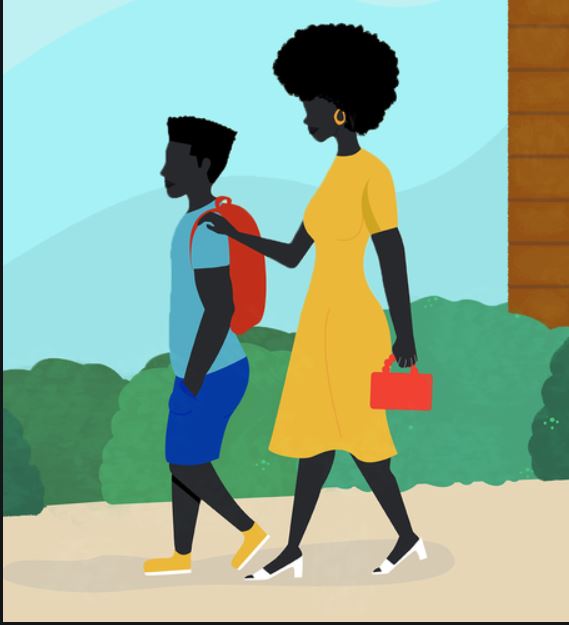
VOX: Often the relatives of the accused turn to journalists, human rights activists and bloggers with a request to write articles and posts in his defense. Some publish such messages on behalf of adult children - high school students and students. This is right?
— In such a situation, it is difficult to give a definite answer, because everything depends on the circumstances of the case and the identity of the suspect. I believe that adult family members can ask for help from journalists and human rights activists, but their communication should take place without the presence of minor children.
VOX: Should the defendant's wife apologize to the injured party in the hope of leniency, or should she stay away from them?
— If a woman feels guilty about her husband, she can ask for forgiveness or express condolences to the injured party. If, in the hope of mitigating the court's sentence, she decides to compensate for material and moral damage, then she must first consult with her husband's lawyer. She needs to do all the manipulations with money accompanied by him in order to avoid the risk of becoming a victim of blackmail and extortion of the victims. Sometimes it happens that the relatives of the victim first ask the accused for one amount, then another, and so on.
She needs to do all the manipulations with money accompanied by him in order to avoid the risk of becoming a victim of blackmail and extortion of the victims. Sometimes it happens that the relatives of the victim first ask the accused for one amount, then another, and so on.
Family ties
VOX: The man was found guilty and convicted. Should a wife take her children with her on a date with him?
— Before you take the children to the colony for the first time, you must first weigh the pros and cons, because for a child prison paraphernalia — barbed wire, bars, sentries on towers — will be stressful. Especially when he sees how dad, trimmed to zero, dressed in a gray robe and worn-out shoes, is brought and taken away under escort in handcuffs. The smaller the baby, the more difficult it is for him to understand what restriction or imprisonment, a colony is. I think that it is better not to take children under the age of 7 to visit their father in prison.
VOX: And if a prisoner suddenly dies in prison as a result of an accident or a serious illness, how to inform his children about this?
- Don't start a conspiracy theory, because this can happen to anyone. We must not see in this the intrigues of enemies, God's punishment or karma, but take death for granted. Children need to be told that their dad has died and now he is watching them from the clouds and protecting their peace and sleep. It is impossible to hide the death of their father from them, because children do not perceive death as painfully as adults. But if suddenly you notice that a child has an unstable emotional state after the death of his father - for example, he often secretly cries, mopes, tries to isolate himself from everyone and avoids communication with peers - then immediately take him to a child psychotherapist or family psychologist.
VOX: How can a child communicate with a convicted father on the phone? What are the best topics to discuss?
— Talking with the father on the phone, the child can discuss any topic with him, but not related to prison. Here it is important for the father to set the child up for positive. For example, ask him what he ate for lunch today, what grade he got at school, what the weather is like outside, what he is interested in lately ... The child must know and feel that his father loves him and is keenly interested in his life. He, too, can ask his dad what he had for breakfast and how he is feeling. And he can also tell dad that he will send him his drawings or a photograph in his mother's letter.
Here it is important for the father to set the child up for positive. For example, ask him what he ate for lunch today, what grade he got at school, what the weather is like outside, what he is interested in lately ... The child must know and feel that his father loves him and is keenly interested in his life. He, too, can ask his dad what he had for breakfast and how he is feeling. And he can also tell dad that he will send him his drawings or a photograph in his mother's letter.
VOX: Is it normal for a teenager to become interested in prison to understand how his father lives behind bars?
— If a teenager is interested in the living conditions of convicts, then this is normal. That is how he will be able to understand in what conditions the father is serving his sentence. But if he began to hang out often on thematic sites run by former prisoners, then it is better to be wary. There is a danger that a teenager will be imbued with "criminal romance" and stop respecting and honoring the laws.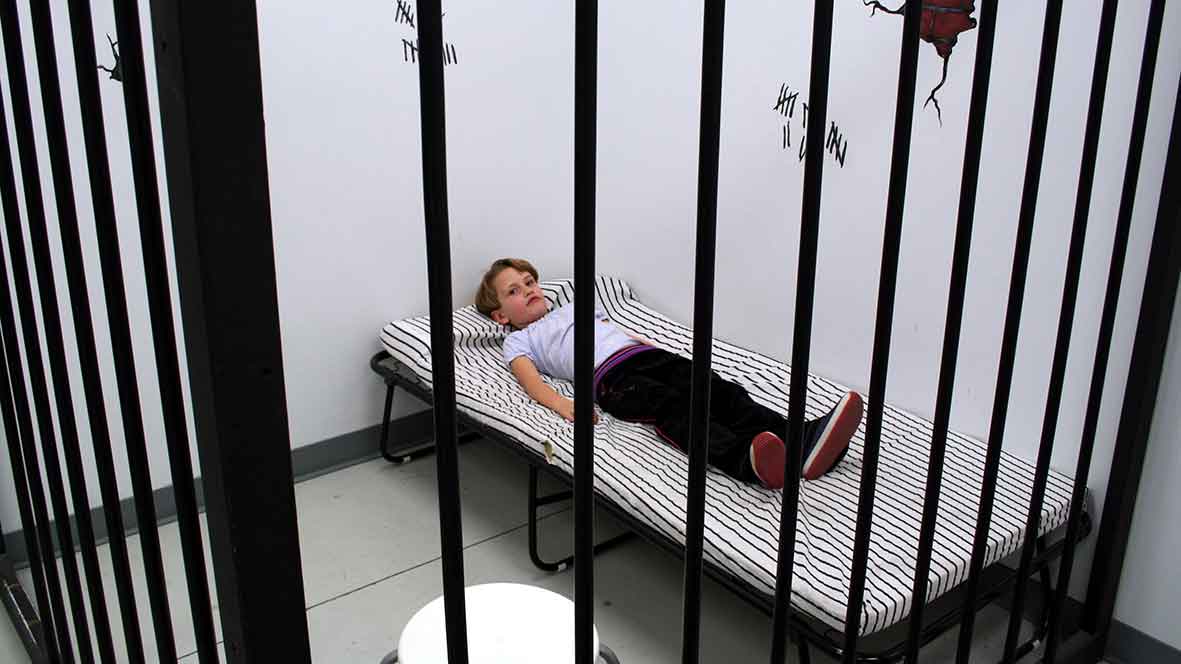 The prison subculture is dangerous because it is easily absorbed by immature minds, so it is necessary to prevent its spread in every possible way. If, for example, a sixteen-year-old son wants to go on a date with his father, then it is better for his mother to consult with a prison psychologist in advance, how ready the son is to see his father in a robe. A specialist can conduct a psychotest with him to find out his emotional state for today.
The prison subculture is dangerous because it is easily absorbed by immature minds, so it is necessary to prevent its spread in every possible way. If, for example, a sixteen-year-old son wants to go on a date with his father, then it is better for his mother to consult with a prison psychologist in advance, how ready the son is to see his father in a robe. A specialist can conduct a psychotest with him to find out his emotional state for today.
VOX: If the wife of a convict suddenly decides to file for divorce, how can she inform her husband's children and parents about this so that they do not perceive it as a betrayal?
— If a woman wants to divorce her convict husband and move to another city, then she sits down at the table with children of different ages and explains to them in plain language that she wants to start life anew. without their dad. "I can't wait for his return and I want to meet a new man." “I don’t blame your father for his crime, we just have a lot of disagreements and misunderstandings. ” “Children, we love you, but we cannot live together. You can communicate with dad, write letters to him, but I will no longer live with him. These are the messages that should be - correct, clear, understandable. As for the father-in-law with the mother-in-law, they, as adult wise people, will understand the daughter-in-law.
” “Children, we love you, but we cannot live together. You can communicate with dad, write letters to him, but I will no longer live with him. These are the messages that should be - correct, clear, understandable. As for the father-in-law with the mother-in-law, they, as adult wise people, will understand the daughter-in-law.
VOX : The high school son became ashamed of his convict father. Is it necessary to re-educate him and force him to respect his father?
— If a son in high school began to turn away and be ashamed of his father, then the mother needs to come to terms with his conscious choice. It is not necessary to force a teenager to love and respect his father, because his negative emotions and attitude are connected not so much with the fact that his father went to prison, but with what has accumulated in the soul of a teenager. Some grievances have been accumulating in our souls for years, and when such a family drama occurs - such as, for example, the arrest of a father - then the negative escapes like steam from a boiler.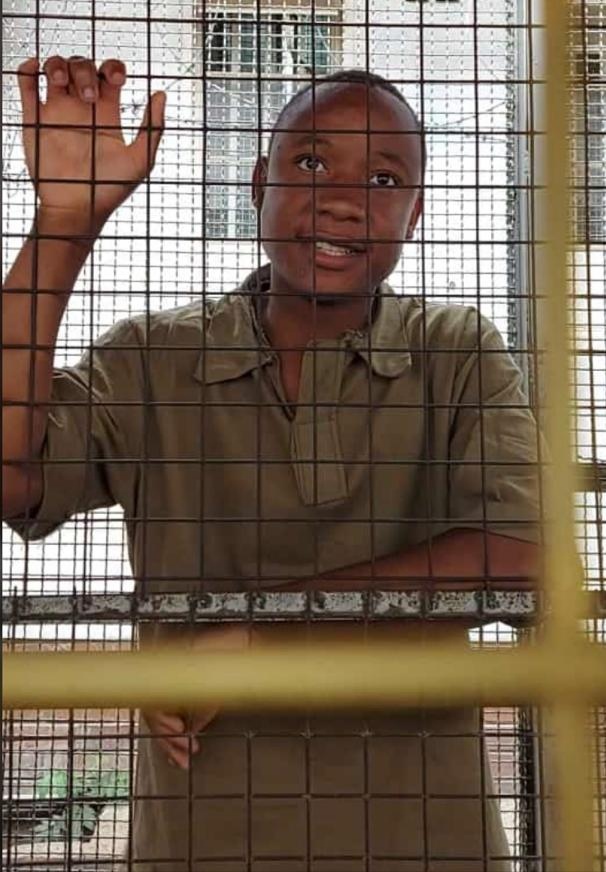 The mother must accept the choice of the older child in the hope that the father, who has returned from prison, will someday explain his behavior and actions to his son. She should not reproach and reproach her son that, they say, dad committed a crime so that we all could live well, and you, ungrateful, now do not reckon with him. If she “runs into” a teenager, then he will turn his back on her. Remember always about youthful maximalism, in which life is presented only in white and black. Adolescents do not have halftones and smooth transitions from one state to another, and this has to be taken into account.
The mother must accept the choice of the older child in the hope that the father, who has returned from prison, will someday explain his behavior and actions to his son. She should not reproach and reproach her son that, they say, dad committed a crime so that we all could live well, and you, ungrateful, now do not reckon with him. If she “runs into” a teenager, then he will turn his back on her. Remember always about youthful maximalism, in which life is presented only in white and black. Adolescents do not have halftones and smooth transitions from one state to another, and this has to be taken into account.
VOX: And how should the head of the family be prepared for the fact that his eldest son is ashamed of him? How can they then live together?
— A wife needs to convey to her husband the information that their firstborn has grown up and therefore has the right to be condemned. It is important to psychologically prepare the head of the family for changes in his son's behavior, so that when he returns home, he relatively calmly endures criticism and reproaches addressed to him and waits for everything to change.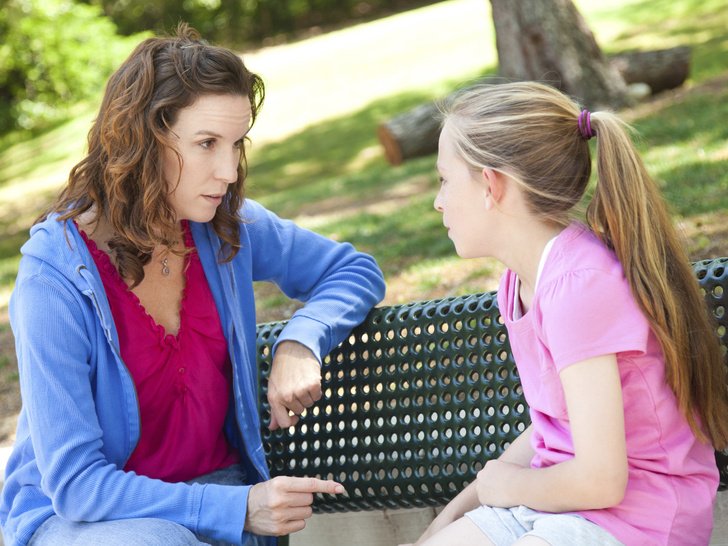 There is no need to fall for the provocations of a teenager - if only because he was brought up for some time without a father.
There is no need to fall for the provocations of a teenager - if only because he was brought up for some time without a father.
VOX: The prison breaks many people, so when they return home, former inmates often lash out at their relatives and friends. How can they understand whether this is due to the psychological stress suffered or an attempt to regain authority in the family, to show who is now the boss in the house?
- You have to watch him to understand the reason for his outbursts of anger. The prison really hurts the human psyche, for some it manifests itself immediately, while for others it accumulates for years and then splashes out. First, try to talk heart to heart with your husband, tell him what worries you about his behavior. If he does not understand this, then you need to leave. Not to file for divorce, namely to temporarily live apart so that he has time to think things over and try to control his emotions. He must have time for social adaptation, for re-establishing family ties.





